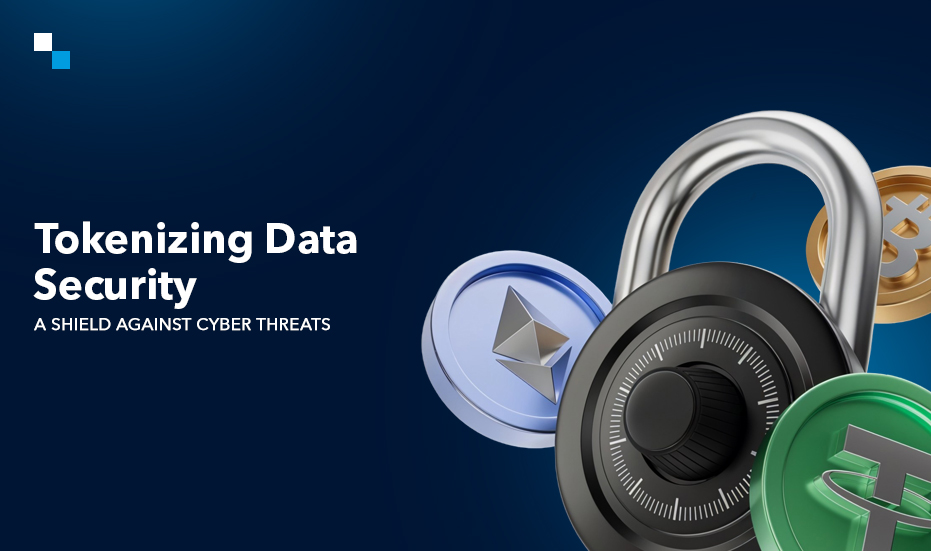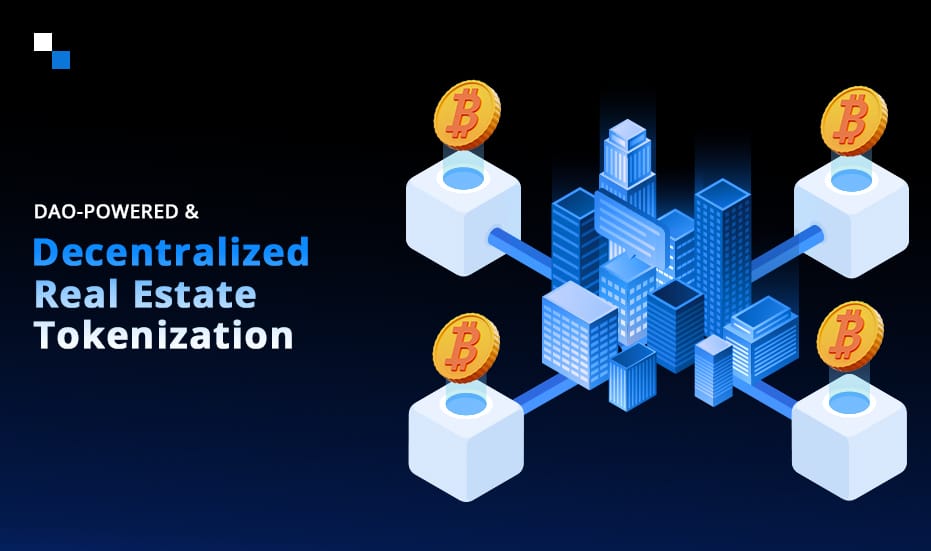
The Ultimate Guide to Developing Telegram Mini Games in 2025
November 27, 2024
Smart Contract Auditing with AI’s Unwavering Eye for Detail
November 27, 2024Organizations around the world pay not only to recover the information lost in cyberattacks but also to suffer downtime and disruption in operations caused by cybercrime. The average cost of a data breach in the world is about 4.35 million U.S. dollars, but financial impact varies widely with region, organization size, and industry.
Tokenization is becoming one of the most adopted security strategies in current times to protect its sensitive information from the sheer and dynamic scenarios of cyberspace threats. Growing risks of data breaches have alarmed businesses, so they are willingly trying new innovative approaches to using tokenized cybersecurity systems.
Tokenizing data security is one of the most promising modern solutions for safeguarding data. By removing sensitive information from systems and replacing it with non-sensitive equivalents, tokenization offers a new layer of security amidst a landscape rife with cyber vulnerabilities.
Defining Data Tokenization Security
Data tokenization security is the process of substituting sensitive data elements with unique identifiers known as tokens. These tokens maintain essential information regarding the data but do not reveal the sensitive content actually. The overall purpose of enabling tokenized data security solutions is to minimize the risk exposure due to data breaches.
Tokenization security solutions for businesses are most useful for those kinds of enterprises whose activities are focused on finance, medicine, and e-commerce. In these industries, it’s crucial to ascertain the protection of PII and financial information. Businesses can ensure that their sensitive information remains secure while allowing necessary operational functions by using security tokenization platforms.
How Tokenized Cybersecurity Systems Work
How tokenized cybersecurity systems work is by replacing sensitive data with tokens having no intrinsic value or meaning. Thus, in a data tokenization security system, whenever there some sensitive data is to be entered, it creates a unique token that only points to the original data. Then, the original sensitive data is kept in a centralized vault-like database called a token vault.
The process typically involves several steps:
- Data Submission: Sensitive data is sent to the tokenization system.
- Token Generation: A unique token is created and stored in the token vault.
- Token Usage: The application uses the token for operational purposes instead of accessing the original sensitive data.
This architecture of tokenized data security solutions ensures that even if an attacker gains access to the system, they will only encounter meaningless tokens rather than valuable personal or financial information.
Tokenization vs Encryption
While both tokenization and encryption serve to protect data, they employ fundamentally different approaches:
- Tokenization substitutes sensitive data with random tokens, while the original data is stored in a secure vault
- Encryption transforms data using an algorithm and key, making it theoretically reversible
- Security tokenization platforms offer better performance as they don’t require extensive computational resources
- Tokens cannot be reverse engineered, unlike encrypted data which can potentially be decrypted
Data Masking vs Data Tokenization
Data masking and tokenization represent two distinct approaches to data protection:
- Data masking permanently obscures data using a consistent format
- Tokenized Data Security Solutions maintain data usability while ensuring protection
- Masking is typically irreversible, while tokenization allows authorized access to the original data
- Tokenization provides more flexibility in data handling and analysis
Benefits of Tokenizing Data Security
Implementing tokenization security solutions for businesses offers numerous benefits for organizations:
- Enhance Security: Tokenizing sensitive data reduces the risk of losing sensitive information which might result in a huge financial loss.
- Regulatory Compliance: Tokenization allows for organizations to be PCI DSS compliant as the amount of sensitive data stored and processed is minimized.
- Reduce Scope of Audits: Organizations reduce the volume of sensitive information dealt with within their systems by following the data tokenization security practices. Hence, it makes audits less complex and reduces any associated costs.
- Improved Customer Trust: Demonstrating robust security measures through tokenization can enhance customer confidence in an organization’s ability to protect their personal information.
- Operational Efficiency: Tokenized systems can improve transaction speed and efficiency by allowing businesses to process transactions without accessing sensitive information directly.
Tokenization Security Solutions for Businesses
Businesses can leverage various tokenization security solutions tailored to their specific needs to stay free from the worries of losing privacy or facing loss to reputation apart from undergoing a financial setback:
- Cloud-Based Solutions: Companies provide cloud-based tokenization services to business organizations so that they can scale their operations without compromising on security.
- On-premises solutions: there are organizations who have to adhere to very strict regulations or have highly sensitive data. For them, on-premises tokenization solutions offer more control over their security infrastructure.
- Integration with Existing Systems: Leading tokenization platforms offer APIs and tools for integration with existing IT infrastructures to support a seamless onboarding of these solutions into businesses.
By choosing the proper security tokenization platforms, organizations can improve their overall cybersecurity posture while also easing the burden of compliance.
Role of the Security Tokens
Modern cybersecurity frameworks use security tokens for ensured protection of sensitive information. These tokens represent a digital form of an asset or utility secured by blockchain technology. They also serves to grant transparency and security in transactions while allowing access only to the authorized persons over the sensitive information.
Advantages of Security Tokens:
- Immutable Records: Security tokens are recorded on a blockchain, an immutable ledger that increases accountability and traceability.
- Reduced fraud risk: Organizations can reduce the risk of fraud that is associated with traditional transaction methods by using blockchain technology.
- The enhancement of user control: security tokens empower users, as they can control their personal data and assets.
Key Applications of Tokenized Data Security Solutions
Several industries are now focusing on tokenizing data security. Some of them are mentioned below:
- Financial Services: Tokenization protects sensitive data like credit card details and other financial information while processing payments as well as managing transactions.
- Healthcare: Patient’s medical history and other records can be protected with tokenization which will help align with HIPAA and uphold privacy on patients’ data.
- Supply chain management: Tokenizing sensitive supply chain information will allow companies to preserve confidentiality while still making operations easy across various partners.
- Retail: Safeguards customer data during online and in-store transactions.
- Cloud Computing: Secures sensitive data stored in cloud environments by tokenizing it before upload.
- Government: Protects citizens’ data in databases and systems to prevent unauthorized access.
These applications show the ease and effectiveness of using tokenized cybersecurity systems in different sectors to protect critical information.

Future Trends in Tokenized Data Security
In future, we might have to face diverse types of cybersecurity risks, and it will necessitate the organizations to try tokenization security solutions for businesses as strategies move to protect the sensitive information.
Let’s consider the trends that can be considered in the times to come:
- Integration with Blockchain Technology: Utilization of blockchain for safe storage and handling of tokens may improve transparency and trust over transactions.
- Artificial Intelligence (AI) Improvements: AI-based analytics may enhance the capability to detect threats in security tokenization platforms by identifying unusual patterns or behavior that might signal an attack.
- Increased Adoption Across Industries: With the awareness of cyber threats, more businesses in all sectors would want to get data tokenization security solutions to be part of their overall security approach.
- Focus on user privacy: With growing concerns around data privacy regulations like GDPR and CCPA, organizations are likely to prioritize solutions that enhance user privacy through effective tokenization practices.
Final Verdict
Tokenizing data security is an emerging strategy which becomes extremely crucial in an era where attacks like data breaches and cyber threats keep on increasing. With the help of advanced tokenized cybersecurity systems, as well as custom-fit tokenization security solutions, businesses can safeguard their operations, maintain regulatory compliance, and show a significant decrease in risks.
Antier plays a crucial role in forming groundbreaking tokenization security solutions for businesses, ensuring expertise in designing and deploying strong, robust security tokenization platforms. By keeping innovation, scalability, and seamless integration as the core focus, we empower organizations to stay a step ahead of cyber threats. Get ready to transform your data-security framework and future-proof your business in the digital age.




